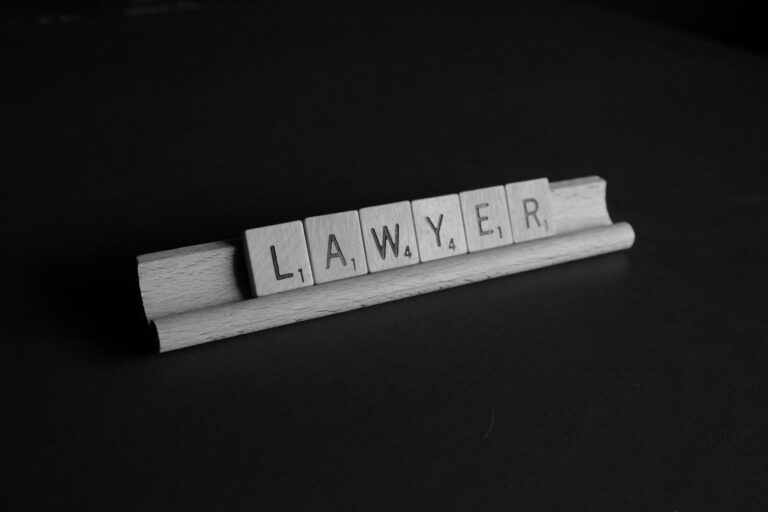Can you Sue a Business that no Longer Exists?
A relatively common question that we hear is the question of suing a business that has ceased to exist.
Imagine a scenario where you, as a customer, supplier, or employee, believe that you’ve been wronged by a business. You may have received faulty products, unpaid invoices, or even experienced workplace discrimination. The business, however, has vanished, maybe gone bankrupt, closed down, or dissolved, leaving you wondering if justice is still attainable. This is a situation faced by countless individuals, it is therefore important to understand the concept and complexities of pursuing legal action against businesses that have ceased operations.
In this article, we take a closer look at this issue and whether or not it is possible.
The Lifecycle of a Business
A business goes through various stages in its existence, each with its own unique characteristics and challenges.
Businesses cease operations for a myriad of reasons. Economic downturns, changing consumer preferences, mismanagement, competition, or simply reaching the natural end of a product or service’s lifecycle can all contribute to a business’s decline. Bankruptcy, mergers, acquisitions, and dissolution are common outcomes when a business decides to shut down or undergo a major transformation.
If you’re considering pursuing a lawsuit, it’s necessary to understand the legal obligations of a business during closure. Businesses are typically required to settle outstanding debts, pay employees, and comply with various regulatory obligations. However, these legal responsibilities can vary depending on the business’s legal structure, such as sole proprietorships, partnerships, corporations, or limited liability companies (LLCs).
For example, a corporation may need to follow specific bankruptcy procedures while a sole proprietorship may have a more straightforward dissolution process. These legal requirements can significantly impact the ability to sue a business that is in the process of closing or has already ceased operations.
Legal Entities and Their Implications
When looking at the complexities of suing a business that no longer exists, it is necessary to understand the legal structures underpinning these entities and how they impact the pursuit of legal action.
Types of Business Entities (Sole Proprietorships, Partnerships, Corporations, LLCs)
Businesses come in various legal forms, each with its own set of implications when it comes to pursuing legal action:
- Sole Proprietorships: In this simplest form of business ownership, the business and the owner are considered one entity. Personal assets are at risk, and suing a sole proprietorship often means pursuing the owner’s personal assets.
- Partnerships: Partnerships can be general, limited, or limited liability partnerships (LLPs). General partners are personally liable for business debts, while limited partners have limited liability. LLPs provide some protection to partners’ personal assets.
- Corporations: Corporations are separate legal entities, shielding the personal assets of shareholders from business debts. However, suing a corporation involves complex corporate law and may require pursuing the entity’s remaining assets.
- Limited Liability Companies (LLCs): LLCs offer a balance between personal liability protection and simplified management. Suing an LLC typically involves seeking compensation from the LLC’s assets rather than the personal assets of members.
Liability Protection and Dissolution Procedures
The choice of legal entity has great implications for liability protection and dissolution procedures. When a business decides to cease operations, it must follow specific legal steps to wind down its affairs. These procedures vary widely based on the entity type:
- Sole Proprietorships: Owners of sole proprietorships have full control but bear unlimited personal liability for business debts. When such a business closes, its owner may be personally responsible for resolving any outstanding legal issues.
- Partnerships: Partnerships often require a formal dissolution agreement, which outlines how assets and debts will be distributed among partners. The type of partnership (general or limited) affects personal liability.
- Corporations: Corporations must follow state-specific dissolution procedures, which can include notifying creditors, settling debts, and distributing remaining assets to shareholders. Shareholders are generally not personally liable for the corporation’s obligations.
- LLCs: LLCs have flexible dissolution processes, usually outlined in their operating agreements. Members are generally shielded from personal liability but may need to contribute to settling business debts.
Implications for Potential Lawsuits
The legal entity’s structure significantly influences the viability and complexity of pursuing a lawsuit against a defunct business. Understanding the entity type can help determine who should be held accountable and what assets might be available for potential compensation.
For instance, suing a dissolved corporation may involve negotiating with its remaining assets or pursuing directors and officers for misconduct. In contrast, suing a dissolved sole proprietorship may entail pursuing the owner’s personal assets.
Suing a Business that No Longer Exists
Now that we better understand the different business structures, let’s jump into the key question: suing a business that no longer exists.
Identifying Responsible Parties
When a business ceases to exist, identifying who should be held responsible for its past actions becomes the first challenge. Depending on the business’s legal structure and circumstances, this might involve:
- Sole Proprietorships: For businesses owned by individuals, the proprietor may be personally liable. Uncovering their whereabouts and assets is critical.
- Partnerships: Partners share responsibilities, so identifying each partner’s role and share in the business is essential.
- Corporations: Directors and officers may be liable for corporate wrongdoing. Investigating their actions and potential misconduct is crucial.
- LLCs: Members’ involvement and responsibilities within the LLC must be examined to ascertain liability.
Investigating Assets and Liabilities
Once responsible parties are identified, it’s time to investigate the business’s assets and liabilities. This entails:
- Asset Investigation: Determine if the business has any remaining assets, including real estate, equipment, inventory, or accounts receivable.
- Liability Assessment: Examine outstanding debts, pending legal claims, and contractual obligations to gauge the extent of financial responsibility.
- Asset Distribution: Understand how assets were distributed during dissolution or closure, and whether any assets were improperly transferred or concealed.
Collecting Evidence of Wrongdoing
To pursue a lawsuit, you’ll need to gather compelling evidence of wrongdoing or harm. This might involve:
- Document Review: Scrutinize contracts, invoices, emails, and any other relevant records that shed light on the alleged misconduct.
- Witness Testimonies: Interview witnesses who can provide firsthand accounts of the business’s actions or practices.
- Expert Opinions: Consider expert witnesses, such as forensic accountants or industry specialists, who can provide professional analysis and testimony.
Statute of Limitations Considerations
One important legal aspect when suing a business, whether it exists or not, is the statute of limitations. This is the time limit within which a lawsuit must be filed after the alleged wrongdoing occurred. It’s imperative to:
- Determine Applicable Statute: Identify the statute of limitations relevant to your specific case, as it varies based on the type of lawsuit and jurisdiction.
- Preserve Your Rights: Ensure your lawsuit is filed within the applicable statute of limitations to avoid losing your right to seek legal recourse.
Alternative Avenues for Legal Redress
When faced with the prospect of suing a business that has ceased to exist, it’s important to acknowledge that the traditional path to justice may not always be straightforward. The good news is that there are alternative avenues for seeking legal redress that can offer some hope for resolution.
Pursuing Individual Liability
In many cases, especially when dealing with small businesses or closely held companies, the individuals behind the business may bear personal liability for their actions. This can include:
- Owners: Owners of sole proprietorships or partnerships may be personally liable for business debts and actions.
- Directors and Officers: In corporations, the directors and officers can be held personally accountable for certain misconduct or negligence.
- Members or Managers: In the case of LLCs, members or managers may have personal liability, depending on their level of involvement and specific circumstances.
Pursuing individual liability can be a viable option when the business itself no longer exists as it allows you to hold responsible parties accountable for their actions.
Seeking Compensation from Insurance Policies
Another potential avenue is to explore insurance coverage. Depending on the nature of the legal claim, the business may have had insurance policies that could cover liabilities, such as:
- General Liability Insurance: This type of insurance can cover claims related to bodily injury, property damage, or personal injury, which could include legal disputes.
- Professional Liability Insurance: Also known as errors and omissions (E&O) insurance, this can cover claims of professional negligence or malpractice.
- Directors and Officers (D&O) Insurance: This insurance is specifically designed to protect directors and officers from personal liability in certain situations.
The existence and extent of insurance coverage can provide a source of compensation when the business itself is no longer financially viable.
Class Action Lawsuits and Bankrupt Businesses
When a business files for bankruptcy, pursuing individual claims against it can be complicated. In such cases, you may consider joining or initiating a class action lawsuit. These lawsuits consolidate similar claims from multiple individuals, making it more efficient to seek redress, even if the business is bankrupt.
Of course, bankruptcy proceedings have a significant impact on the ability to sue a business. The bankruptcy court may prioritize creditors’ claims, which can affect the availability of assets for compensation.
Challenges and Limitations
While pursuing legal action against a business that no longer exists is certainly possible, it’s important to be aware of the challenges and limitations that can make this process more complex.
One of the foremost challenges is locating the individuals or entities responsible for the business’s actions. The owners, partners, or officers may have moved on or even changed their identities, making them challenging to find. This can delay the legal process significantly.
Mitigation: Private investigators, skip-tracing services, or online research can be employed to track down responsible parties. Additionally, legal channels can compel individuals to cooperate in revealing their current whereabouts.
Proving Liability When Records Are Scarce
When a business ceases operations, records may be incomplete or unavailable. This can pose a significant obstacle in proving liability. Vital documents, emails, or financial records may have been lost or destroyed.
Mitigation: Gathering whatever evidence is available becomes paramount. This might involve relying on witness testimonies, reconstructing financial transactions, or using circumstantial evidence to support your case.
The Role of Bankruptcy in Limiting Legal Recourse
If the business filed for bankruptcy, the bankruptcy court’s decisions can heavily impact your ability to pursue a lawsuit. Creditors often take precedence, leaving little to no assets for other claimants.
Mitigation: Participating in the bankruptcy proceedings as a creditor, if applicable, can allow you to have a say in the distribution of assets. Alternatively, exploring other avenues for compensation, such as individual liability or insurance coverage, may be necessary.
Statute of Limitations Constraints
Statute of limitations laws dictate how long you have to file a lawsuit after the alleged wrongdoing occurred. Failing to adhere to these time limits can result in the loss of your legal right to seek redress.
Mitigation: Consult with an attorney as soon as possible to understand the applicable statute of limitations in your case. Prompt action is often crucial to preserving your legal rights.
Financial Costs and Uncertainty
Pursuing legal action, especially against a business that no longer exists, can be quite costly. Legal fees, court costs, and the uncertainty of success can deter individuals from pursuing claims.
Mitigation: Exploring alternative fee arrangements with attorneys, such as contingency fees, where they only get paid if you win, can alleviate some financial burden. Careful assessment of the potential benefits versus costs is essential before proceeding.
Legal Advice and Expert Assistance
In the pursuit of justice against a business that no longer exists, one of the best decisions you can make is to seek professional guidance. Legal complexities abound, and enlisting the expertise of attorneys and specialists can be instrumental in succeeding with your claims.
The Importance of Consulting with an Attorney
When dealing with legal matters involving defunct businesses, consulting with an attorney is a necessity. Here’s why:
- Legal Expertise: Attorneys possess the legal knowledge and expertise required to assess the viability of your case, determine responsible parties, and devise a strategic approach.
- Statute of Limitations Guidance: Attorneys can provide crucial advice on statute of limitations constraints, ensuring that you take timely action to preserve your legal rights.
- Evidence Collection and Preservation: Lawyers have the know-how to gather, evaluate, and present evidence effectively, even when records are scarce.
- Navigating Legal Entities: Understanding the legal structure of the business and its implications often requires specialized legal knowledge, which attorneys can provide.
Legal Aid and Resources Available for Pursuing Claims
Pursuing legal action can be financially daunting. The good news is that various resources and avenues are available to help:
- Legal Aid Organizations: Non-profit legal aid organizations may offer free or low-cost legal services to individuals with limited financial means.
- Contingency Fees: Some attorneys may work on a contingency fee basis, meaning they only get paid if you win your case. This can alleviate upfront financial burdens.
- Bar Associations: Local bar associations often provide resources, referrals, and directories to help you find the right attorney for your case.
- Pro Bono Services: Attorneys sometimes volunteer their services pro bono, assisting individuals who cannot afford legal representation.
Specialized Expert Witnesses
In complex cases, particularly those involving financial matters or industry-specific knowledge, expert witnesses can be invaluable. These professionals can provide specialized insights and testimony to bolster your case.
- Forensic Accountants: In cases where financial records are convoluted or questionable, forensic accountants can help uncover financial irregularities and provide expert analysis.
- Industry Experts: Depending on the nature of your dispute, industry-specific experts can offer insights into practices, standards, and norms within a particular field.






